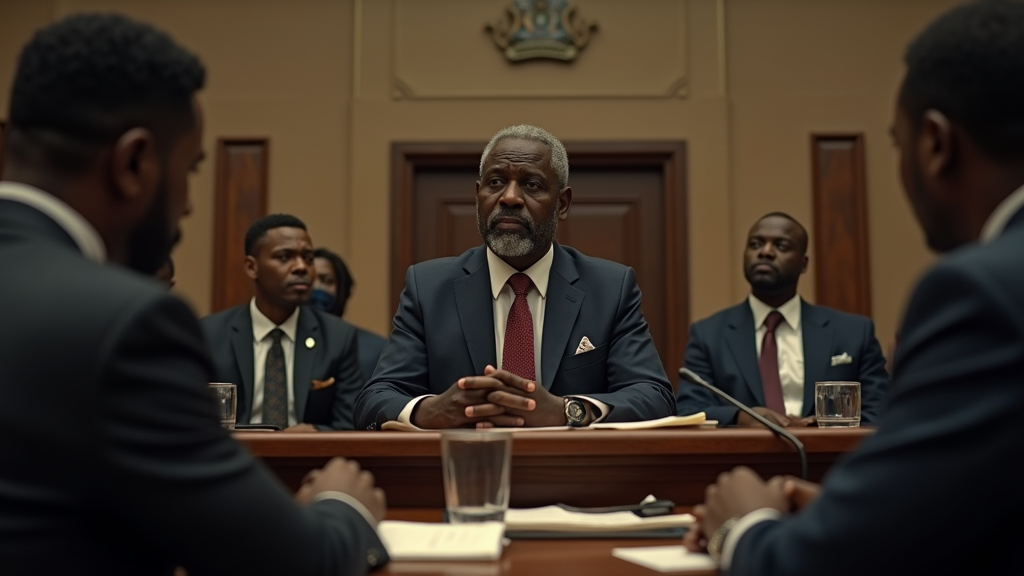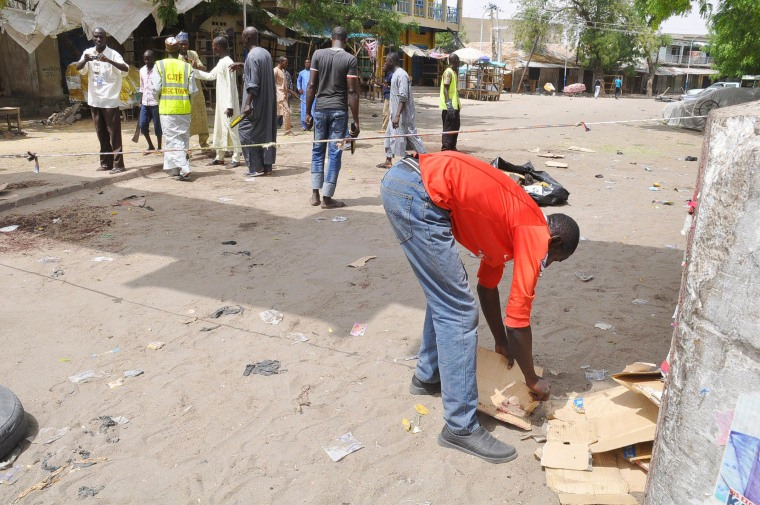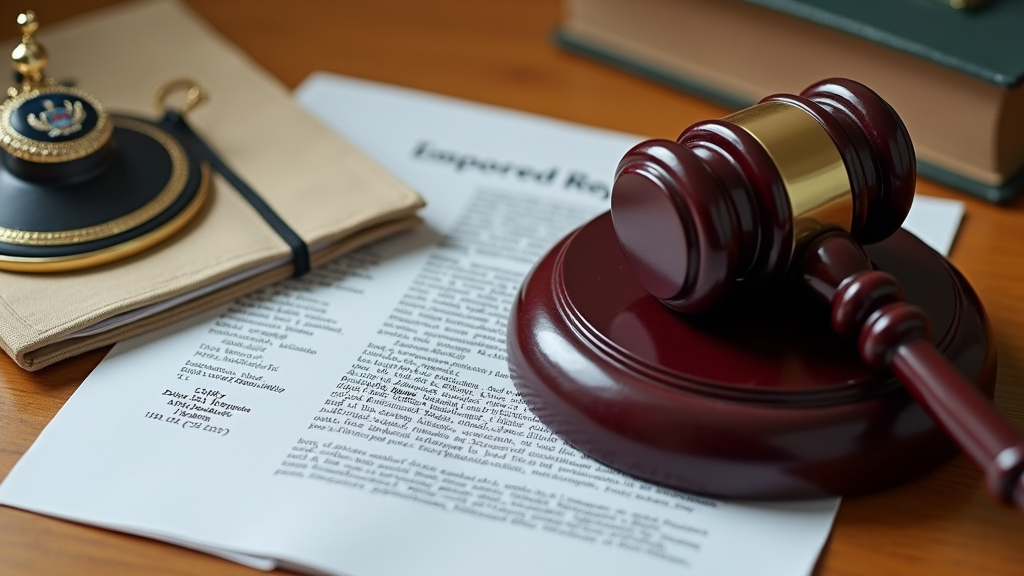The ongoing Lagos State Assembly Crisis has captured the attention of political analysts and the public alike, as tensions rise following the unexpected developments within the assembly. Despite the anticipated resolution brought about by Tinubu’s intervention, Speaker Mudashiru Obasa remains embroiled in a lawsuit against former Speaker Mojisola Meranda, leaving many to question the future of legislative proceedings. This political maneuvering has resulted in a frustrating legislative standstill, worrying stakeholders within the Lagos APC about the implications for governance. As the dynamics unfold, there is growing anxiety among party members regarding Obasa’s adamant stance on the legal battle. With discussions surrounding resolutions and the potential for withdrawal of the suit, the situation remains precarious and full of intrigue.
The tumultuous situation within the Lagos State Assembly, often referred to as a political impasse or conflict, has brought forth a myriad of disputes that challenge the cohesion of local governance. This legislative debacle, propelled by Speaker Mudashiru Obasa’s ongoing legal case against Mojisola Meranda, reflects deeper issues of power and authority within the assembly. As the political climate continues to shift, stakeholders within the Lagos APC are left grappling with the fallout of what can only be described as a crisis of leadership. Despite President Bola Tinubu’s much-lauded attempts to broker peace, the standoff persists, raising concerns about the operational capabilities of the assembly. With the legislative body at a standstill, observers are left speculating about the future trajectory of political alliances and the implications for effective governance in Lagos.
The Ongoing Lagos State Assembly Crisis
The Lagos State Assembly crisis, which has seen significant political maneuvering, continues to perplex political observers and party leaders alike. Despite President Bola Tinubu’s intervention, which was thought to have resolved the tensions and reinstated Speaker Mudashiru Obasa, the reality is that Obasa remains engaged in a lawsuit against former Speaker Mojisola Meranda and other members of the Assembly. This legal battle is not just an internal conflict; it symbolizes a deeper struggle within the Lagos APC that could potentially disrupt governance at a critical time.
Reports indicate that confusion is rife among APC leaders in Lagos regarding Obasa’s decision to continue with the lawsuit. After Tinubu’s intervention, many expected a return to normalcy in the Assembly; however, Obasa’s adamant stance has led to questions about the motivations behind his continued legal actions. The legislative standstill, compounded by this ongoing crisis, raises concerns about the effectiveness and efficiency of the Lagos State government as it grapples with pressing issues that require legislative oversight.
Tinubu’s Intervention and Its Implications
President Bola Tinubu’s involvement in the Lagos State Assembly crisis was initially seen as a decisive move to end what appeared to be a debilitating power struggle. His mediation between Obasa and Meranda was expected to facilitate not only a smooth transition of leadership but also restore harmony within the APC ranks. However, with the ongoing lawsuit, the implications of this intervention are now being called into question. Perhaps most notably, the lingering conflict undermines the party’s unity and effectiveness at a time when collaborative governance is essential.
Furthermore, Tinubu’s intervention underscores the complexities of political maneuvering in Lagos. While many party members, including former APC chairman Otunba Henry Ajomale, express optimism that the lawsuit will soon be resolved, the continuation of court proceedings suggests that not all is well within the ranks. The situation emphasizes the need for the party to address internal grievances swiftly to avoid a prolonged impasse that could detract from the administration’s goals and hinder legislative progress.
The Role of Legal Disputes in Political Dynamics
Legal disputes, particularly in political contexts, often serve as critical flashpoints that reveal underlying tensions within parties. In the case of the Lagos State Assembly, Speaker Mudashiru Obasa’s lawsuit against former Speaker Mojisola Meranda illustrates how personal grievances can escalate into broader political crises. Such disputes not only impact individual careers but also have lasting effects on legislative functionality and party reputation. The ongoing lawsuit raises critical questions about the nature of leadership and accountability within the APC.
Moreover, the legal battle has significant implications for the legislative landscape in Lagos. With the Assembly effectively at a standstill due to Obasa’s determination to see the lawsuit through, the lack of legislative activity hampers governance. Critical laws and policies essential for the state’s development remain pending, showcasing how individual actions can greatly affect collective governance. The resolution of this legal dispute will be paramount in reinvigorating the legislative process and restoring confidence among constituents.
Obasa vs. Meranda: A Personal and Political Clash
The clash between Speaker Mudashiru Obasa and former Speaker Mojisola Meranda represents not just a personal rivalry but a significant political conflict within the Lagos State Assembly. Obasa’s decision to pursue legal action against Meranda, who temporarily filled his shoes during his ouster, highlights entrenched power dynamics and the struggle for influence within the APC. It raises intriguing questions about the role of ambition and personal relationships in shaping political landscapes.
Moreover, as the crisis unfolds, it becomes clear that this is about more than just the speakership; it is about the future direction of governance in Lagos. With Obasa and Meranda symbolizing two factions within the party, their dispute reflects broader ideological divides that could shape legislative agendas for years to come. The ability of leadership to navigate this conflict will have lasting repercussions not only for their political careers but also for the APC’s cohesion and effectiveness.
Lagos APC’s Internal Challenges
The Lagos APC is currently facing significant internal challenges that risk undermining its political strength. The ongoing crisis in the Lagos State Assembly, driven by Speaker Mudashiru Obasa’s lawsuit against Mojisola Meranda, highlights the party’s difficulties in managing dissent and maintaining unity among its members. This turbulent situation has created a breeding ground for confusion and uncertainty, particularly in light of Tinubu’s intervention, which was initially perceived as a unifying effort.
As party leaders grapple with the fallout from the ongoing legal issues, there is a palpable concern that internal strife could overshadow the APC’s strategic goals. Maintaining solidarity is crucial for the party to effectively respond to the pressing needs of Lagos residents. Without addressing the fractures that have emerged, the APC risks alienating its base and jeopardizing future electoral success. The need for cohesive leadership and decisive action has never been more urgent.
The Legislative Standstill and Its Consequences
The ongoing legislative standstill in Lagos is a direct consequence of the internal conflicts within the State Assembly, particularly the issues surrounding Speaker Mudashiru Obasa’s legal battle. Since the Assembly has not convened since early March, significant bills and resolutions remain unaddressed, potentially impacting various aspects of governance, including infrastructure development and public welfare initiatives. This situation not only stagnates legislative progress but also breeds discontent among constituents who expect responsive governance.
Additionally, the protracted inactivity in the Assembly triggers wider concerns about accountability and transparency within the political system. With lawmakers unable to fulfill their duties, public trust in the government may erode, leading to skepticism about the intentions and capabilities of the APC. As the party navigates these challenges, there is a pressing need to prioritize legislative activity to restore confidence and effectively meet the governance needs of Lagos.
Future Prospects for the Lagos State Assembly
The future of the Lagos State Assembly hinges on the resolution of the current crisis surrounding Speaker Mudashiru Obasa and the lawsuit against Mojisola Meranda. Optimism exists among some APC leaders that the ongoing legal battles will soon end, allowing the Assembly to resume its functions and effectively address pressing legislative matters. The key will be whether Obasa decides to withdraw his lawsuit in light of party pressures and public expectations.
However, the resolution of this crisis will require careful negotiation and a commitment to unity within the APC. As the party seeks to move forward, proactive measures must be taken to ensure all voices are heard and respected in the decision-making processes. Only through cooperative governance can the Lagos State Assembly regain its effectiveness and work towards the betterment of its constituents.
Navigating Political Maneuvering in Lagos State
The political maneuvering that surrounds the Lagos State Assembly crisis serves as a critical reminder of the intricate dynamics at play within local governance structures. As Speaker Mudashiru Obasa faces off against his former colleague, the complexities of party politics are laid bare, demonstrating how personal ambitions can intertwine with broader governance issues. Understanding these dynamics is essential for anyone looking to comprehend the challenges facing Lagos’s political landscape.
Furthermore, effective navigation of this landscape will require not only strategic insights but also a willingness to compromise and build coalitions. With prominent figures like Tinubu involved in seeking resolutions, the potential for healing and unity exists, but it will take concerted effort to capitalize on this opportunity. Engaging party members and fostering a collaborative environment will be key to overcoming the current crisis and achieving long-term stability in Lagos politics.
The Impact of the Legal Battle on Governance
The legal confrontation instigated by Speaker Mudashiru Obasa against his predecessor, Mojisola Meranda, embodies the challenges that have emerged in governance due to political disputes. The ongoing battle in court is not merely a reflection of personal grievances but has significant repercussions for the functioning of the Lagos State Assembly. Governance, by its nature, demands active engagement from lawmakers, and here, the legislative standstill threatens to paralyze essential governmental functions.
If unresolved, this legal battle could set a precedent of instability in Lagos governance, further complicating the dynamics of political power within the Assembly. As legislative sessions remain halted and pressing policies await deliberation, the urgency of addressing these conflicts becomes increasingly clear. The ramifications of such disputes extend beyond individual ambitions; they echo in the daily lives of Lagos residents who depend on their elected officials to enact positive change and ensure effective governance.
Frequently Asked Questions
What is the current status of the Lagos State Assembly Crisis?
The Lagos State Assembly Crisis continues as Speaker Mudashiru Obasa persists in a lawsuit against former Speaker Mojisola Meranda despite President Tinubu’s intervention aimed at resolving the dispute. This legal battle has led to a prolonged legislative standstill in the Assembly since March 3, raising concerns among APC leaders.
How did Tinubu’s intervention affect the Lagos State Assembly Crisis?
Tinubu’s intervention was initially anticipated to resolve the Lagos State Assembly Crisis and facilitate Obasa’s return as Speaker. While Obasa was reinstated, his ongoing lawsuit against Meranda and other lawmakers suggests that the crisis is still unresolved, further complicating the political landscape within the Lagos APC.
Why is there confusion among Lagos APC leaders regarding Obasa’s lawsuit?
Confusion among Lagos APC leaders stems from Speaker Obasa’s refusal to withdraw his lawsuit after President Tinubu’s intervention. Many party leaders, including Otunba Henry Ajomale, had expected the legal issues to be settled promptly, especially since Meranda had stepped aside in favor of peace within the party.
What are the implications of the legislative standstill in Lagos due to the Assembly crisis?
The legislative standstill in Lagos due to the Assembly crisis poses significant implications for governance, as the Assembly has not reconvened since March 3. This inactivity can hinder the passage of crucial laws and affect the functioning of the Lagos State government, raising concerns among citizens and political observers.
What has been the role of Obasa’s legal team in the Lagos State Assembly Crisis?
Obasa’s legal team, led by Chief Afolabi Fashanu, has firmly stated that they are awaiting a court judgment regarding Obasa’s lawsuit against Meranda and other lawmakers, dismissing rumors of a potential withdrawal. Their continued pursuit of the case adds to the complexity of the Lagos State Assembly Crisis amidst political maneuvering.
How did the leadership change in the Lagos Assembly contribute to the crisis?
The leadership change in the Lagos Assembly, marked by Obasa’s ouster on January 13, 2025, and the subsequent appointment of Meranda as the first female Speaker, triggered intense political maneuvering. Obasa’s reinstatement after Tinubu’s intervention has not alleviated the tensions, underscoring the fragility of the current political arrangement in the Lagos State Assembly.
What are the expectations regarding the resolution of the Lagos State Assembly Crisis?
Despite the ongoing lawsuit by Speaker Obasa, expectations for a resolution of the Lagos State Assembly Crisis remain mixed. APC leaders, including Ajomale, believe that the lawsuit will soon be withdrawn, suggesting that peace might be restored in the Assembly, while others remain skeptical about the actual progression of events.
| Key Points | Details |
|---|---|
| Crisis Continuation | Speaker Mudashiru Obasa continues his lawsuit against former Speaker Mojisola Meranda despite President Tinubu’s intervention. |
| Party Leaders’ Concerns | APC leaders in Lagos are confused about Obasa’s refusal to withdraw the case even after the party resolution. |
| Meranda’s Acceptance | Meranda stepped aside for party interests and is not contesting further for the speakership. |
| Legal Stance | Obasa’s lawyer confirmed they are awaiting judgment and have no plans to withdraw the case. |
| Obasa’s Reinstatement | Obasa was reinstated after intense political maneuvering following his ouster on January 13, 2025. |
| Legislative Standstill | The Lagos Assembly has not reconvened since March 3, raising concerns about legislative activity. |
Summary
The Lagos State Assembly Crisis remains unresolved as Speaker Mudashiru Obasa continues his legal battle against former Speaker Mojisola Meranda, defying expectations that President Tinubu’s intervention had settled the matter. Despite internal party pressures and confusion among APC leaders, the situation remains tense, with the Assembly inactive and previously made agreements seemingly disregarded. Stakeholders are closely monitoring developments, indicating a continued ripple effect on governance in Lagos State.



